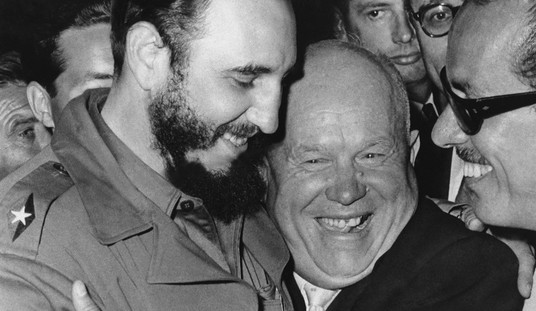Tapper says yes. I say “Huh?”
With that in mind, he made clear his guiding principles:
1) that the US must hold itself to a higher code of conduct, hence his invocation of his ban on torture and his order of the closure of the detainee center at Guantanamo Bay;
2) that the international community, if it is truly serious about trying to avoid war, must fully engage tough diplomacy against rogue nations such as North Korea and Iran that would keep crises surrounding those nations from becoming wars;
3) that the world must engage with governments of ill-repute, and try to bring them back into the fold; and
4) that a nation’s hostility towards human rights and economic injustice cannot be allowed to thrive, for those conditions lead to war in the long term.
I’ll concede number three, but only with the reminder that Hamas is the de facto sovereign government in Gaza and The One refuses to chat with them lest he alienate pro-Israel Democrats. As for the rest of it, in what way do any of these principles amount to a concrete “doctrine” that would let us predict how Obama will address concrete foreign policy problems? (No wonder Angelina Jolie’s confused about his Darfur policy.) Re-read the speech. Sometimes war is necessary but we must always be open to diplomacy, and multilateral action is best although unilateral action may also be warranted, and we should strive towards our moral ideals while also defending our national interests. That’s vintage Obama, refusing to commit to any position unless and until he absolutely has to. Which is fine by me — why should he tie his own hands as C-in-C? — but a “doctrine” it isn’t.
In fact, let’s take Tapper’s points in turn:
1) Yes, The One wants America to hold itself to a higher standard of conduct — but higher than what? Higher than Bush’s standard, clearly, but not all that high in the abstract. This is, after all, a guy who’s developed a two-tiered legal system for Gitmo jihadis that will let him conduct show trials that serve him politically. And he also had the stones to stand up earlier this year in front of the Constitution (literally) and lecture Bush and Cheney on American ideals before announcing that some terrorists in U.S. custody would continue to be detained indefinitely without trial. And needless to say, neither Bush nor Cheney ever claimed that America shouldn’t hold itself to a higher standard of conduct than the enemy. If they had, KSM would have gotten a lot worse than waterboarding from the CIA.
2) This is a call for other countries to do more, not an indication of what Obama himself might or can do. What would it mean in concrete terms? That if some rogue actor does something provocative, Obama will run to Russia and China and say, “Now is the time for you to avert regional war by fully engaging in tough diplomacy?” That’s not a policy; that’s a way of giving historically unreliable powers undue influence over your own options.
3) Again, I’ll concede this as a bedrock of The One’s approach, but it’s more a historical default than something that’s distinctive to him. Reagan dealt with the Soviets, Nixon went to China, etc etc. It’d be more accurate to say that he’s repudiating the Bush doctrine than fashioning something new, although of course even Bush pursued six-party talks with North Korea and ultimately allowed the State Department to meet informally with Iran. If there’s anything unique to Obama’s approach, it’s that he’ll meet with literally any sovereign regime, no matter how small or scummy. Except, of course, Hamas.
4) This one confuses me the most as it would conceivably justify any approach. Reaching out to a rogue regime like Sudan or Myanmar could reduce their hostility to human rights by earning some goodwill concessions. But isolating a rogue regime like Iran with sanctions could reduce their hostility to human rights by pressuring them economically until they say uncle. The One himself put it this way yesterday: “There’s no simple formula here. But we must try as best we can to balance isolation and engagement, pressure and incentives, so that human rights and dignity are advanced over time.” Thanks for the tip, Yoda. Again, aside from its contrast with the Bush doctrine of Dubya’s first term, in what way does this give us any real insight into Obama’s approach?
Exit question: Isn’t this the real “Obama doctrine”? Step one: Diplomacy. Step two: International sanctions, or unilateral ones if absolutely necessary. Step three: Repeat as necessary.









Join the conversation as a VIP Member